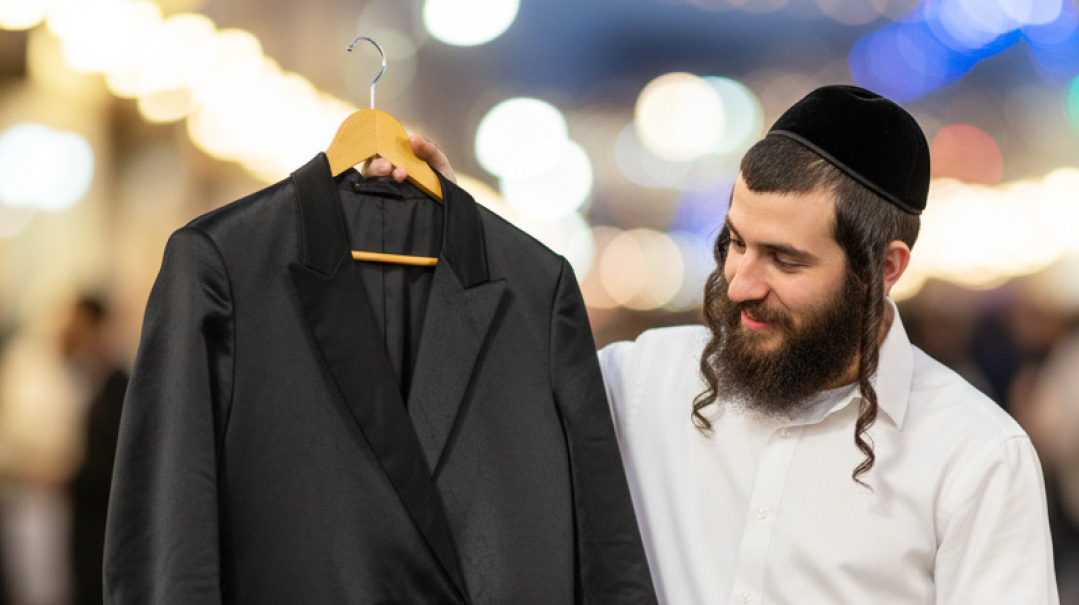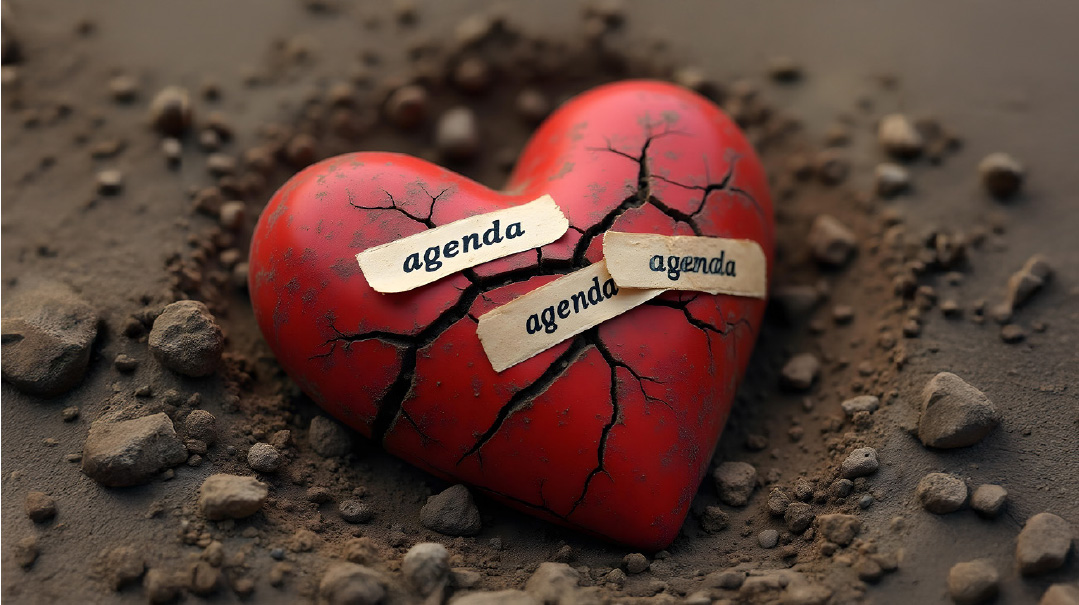Long Covid

Covid turned a niggling suspicion of authority into a veritable wave of distrust

ON
January 30, 2020, the World Health Organization declared a public health emergency of international concern. On February 11, it publicized the official name for the virus behind the new outbreak: Covid-19.
Five years later, there are millions of families whose realities have been irrevocably, tragically shattered by Covid. The pain and loss will never go away. But for the rest of us, Covid has largely receded — in 2025 it means, at least for most people, a nasty cough, a bad headache, and then back to life.
But has it really faded? The masks are gone, the lockdowns a memory, but give it some more thought and you’ll find that Covid hasn’t fully left.
Covid turned a niggling suspicion of authority into a veritable wave of distrust.
Doctors rued the “Dr. Google” trend for years before Covid — the patient who arrived for an appointment armed with his own Internet research, self-declared diagnosis, and treatment recommendation. That patient saw himself as almost equal to the doctor; maybe he couldn’t write the actual prescription, but he wasn’t interested in any patronizing professional telling him he didn’t know his own body.
Covid turbocharged that trend into a deep erosion of trust in authority. As we watched the establishment flounder, flail, progress, then backtrack, we lost our faith in science, medicine, government, and media. Soon enough we were treating official recommendations and heartfelt exhortations with skepticism, suspicion, and cynicism. With all your degrees and expertise, you still can’t figure this thing out. Your so-called protective measures are destroying lives and livelihoods for those who don’t seem to face much risk. And anyway, who are you to tell me what to do or not to do? Why should I let you decide where I can go, who I can visit, when and where to hold my own wedding?
We saw just a powerful demonstration of that trend this November, when we watched a majority of Americans signal that they prefer freedom to so-called security, that they don’t trust Big Pharma, or Big Gov, or the MSM to dictate how they should lead their personal lives. Many of us thrilled at that national declaration of independence. We saw something healthy and bracing in the instinct to question, to push back, to do our own research rather than meekly follow instructions. It feels instinctively right to us Jews who are accustomed to questioning the accepted norms in our search for truth.
But let’s be honest. Beyond the potential health risks of that attitude — a separate, loaded discussion usually consisting of people shouting past one another — celebrating the we-know-better mindset comes with other serious costs. Even if some Covid policies deserved doubt and pushback, the “we know better” mentality left us smugger overall — and more skeptical about people, policies, or institutions that deserve faithful reverence.
As frum Jews, we prize our penchant for asking tough questions and seeing through the mist of so-called consensus. But we also need to hold on to the capacity to trust. Part of our faith involves deferring to those above us, knowing that our intelligence and reasoning only reach so far and sometimes must be subjugated.
Five years later, are we still capable of that unquestioning reverence? Have our children absorbed an attitude that will make it harder for them to thrive under spiritual authority?
Inside our living rooms, Covid blurred the boundaries between private and public, work and home. The virus is no longer in the headlines, but the technological solutions that became part of our locked-down lives aren’t going away.
After the first few days of panic — how will we get our jobs done without an office? — we found digital solutions to the lockdown limitations. There were virtual forums for Zoom meetings, shopping, shiurim, fundraisers, therapy sessions, even first dates. Soon we got used to the heady feeling of being instantly available, connecting with others even amid the Covid confines. We were moving worlds, making deals, effecting change — all from a screen. It felt like we’d managed to overpower and outsmart the constraints of space.
On the surface, the era of remote is over. Social distancing is long gone. The federal government and major tech companies like Amazon and Dell have joined the call summoning workers back to the office: Work must now happen at work.
It’s not just to ensure workers aren’t folding laundry or watching a game during work hours. It’s grown clear that people need people to produce. Human interaction sparks productivity; the immediacy of the interaction causes creative reactions that just don’t happen over a screen.
(We Jews knew this already, at least in theory. You can’t have a Zoom minyan. Even the best digital bond doesn’t create the receptacle for holiness that actual physical presence does.)
But even if all the world’s workers can be induced or threatened to return to the office (not likely — international work teams have too many business payoffs), Covid has brought permanent change to our work lives. It stretched and expanded the parameters of “work.” And it’s become an entrenched operating system. We hop onto a work meeting from our vacation villa. We log into webinars while driving a child to the pediatrician (and continue in the waiting room, after setting her up with a screen of her own). We slip in some transatlantic negotiating during date night, while waiting for the waiter to serve the main course.
Barriers, once broken, can’t easily be reconstructed. When we made those virtual solutions part of our lives — when we found ways to stay connected and obligated even behind the closed doors of our private spaces — we didn’t realize how hard it would be to restore the boundaries.
Now home is just another setting where work can happen and everyone’s expected to be accessible at any time or in any time zone. The new norm is a constantly fractured focus, and it’s harder than ever to muster undivided attention for the people who deserve it most.
Healthy children and teens, we discovered during those initial months of the pandemic, weren’t susceptible to the worst of the disease. We only learned afterward — and we’re still learning now — that Covid could destroy something essential inside them.
Everyone needs a reason to get out of bed. There is nothing as empowering, as validating, as knowing that unless you get up, get out there, and make your contribution, some vital work will remain unfinished.
During those months of no school, no tests, no expectations, lots of kids tasted that blessed/cursed existence: Whether they got out of bed or not, called in to the school’s phone line or not, got dressed or stayed in pajamas, it didn’t really make a difference. In that suspended reality they experienced during the lockdowns, they focused on the short-term — What should we eat for lunch today? What time is the backyard minyan? Should we call into a shiur or just skip it? — and the long-term sort of evaporated. No wonder they fell into the torpor best expressed as what’s the point.
For those who lost family members to the virus, and for the countless first responders in various spheres — medical, rabbinic, social services, chesed — who experienced those initial months as the most draining, crazed marathon of their lives, it was different. Covid called for extreme focus, extreme stamina, extreme resilience.
But for tens of thousands of teens who, at least medically, spent the pandemic safe and sound, stripping away the long-term lens also stripped away drive, ambition, and zest for life. Rabbi Akiva Tatz has an insightful definition for happiness: Being engaged in a process whose end goal you see as valuable. You don’t have to make it to the finish line to achieve happiness, he clarifies; you just have to be in the process, striving for something, feeling your own significance.
Too many people lost that during Covid. Too many lost the satisfaction that comes with the struggle-and-triumph of setting a goal and reaching it. They’re Covid victims, too. Their lung function is just fine, but take another look and you’ll see the scars they still carry in their eyes, on their souls.
(Originally featured in Mishpacha, Issue 1048)
Oops! We could not locate your form.







